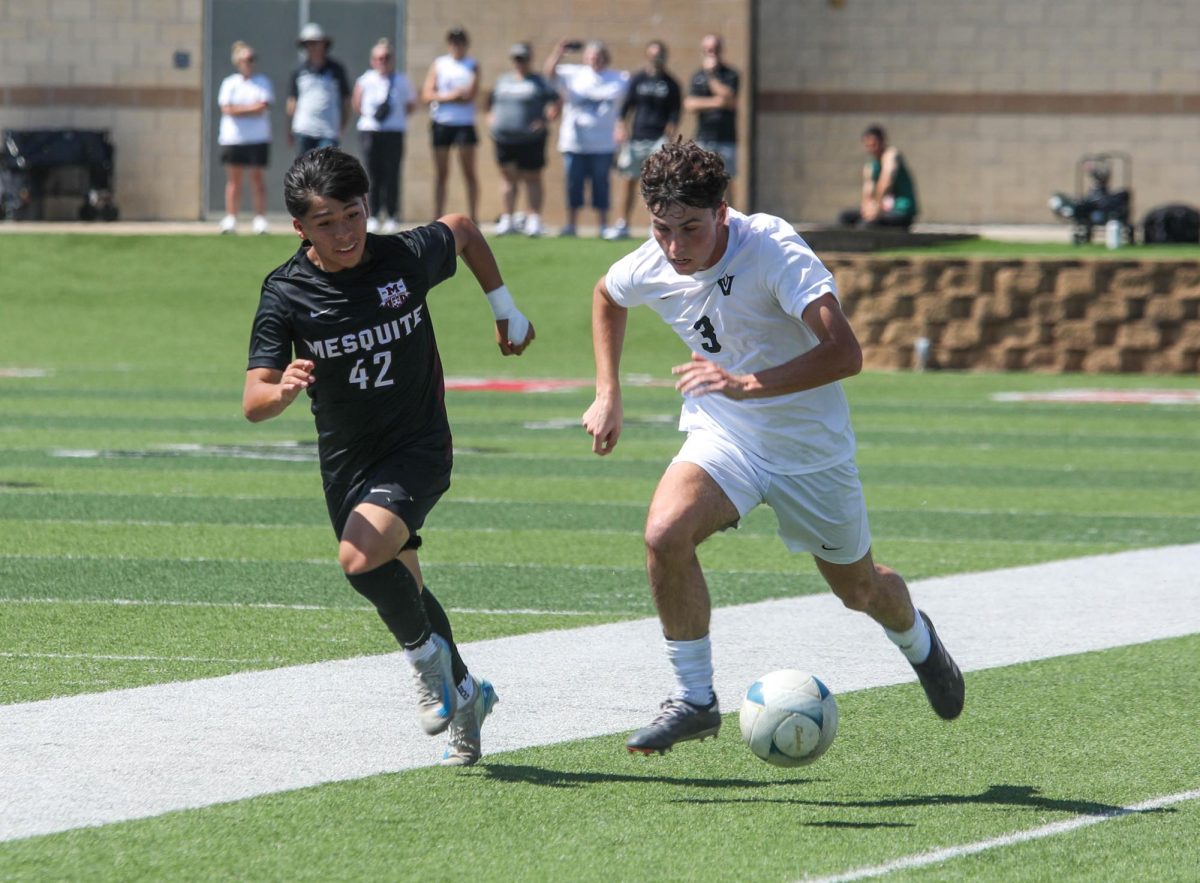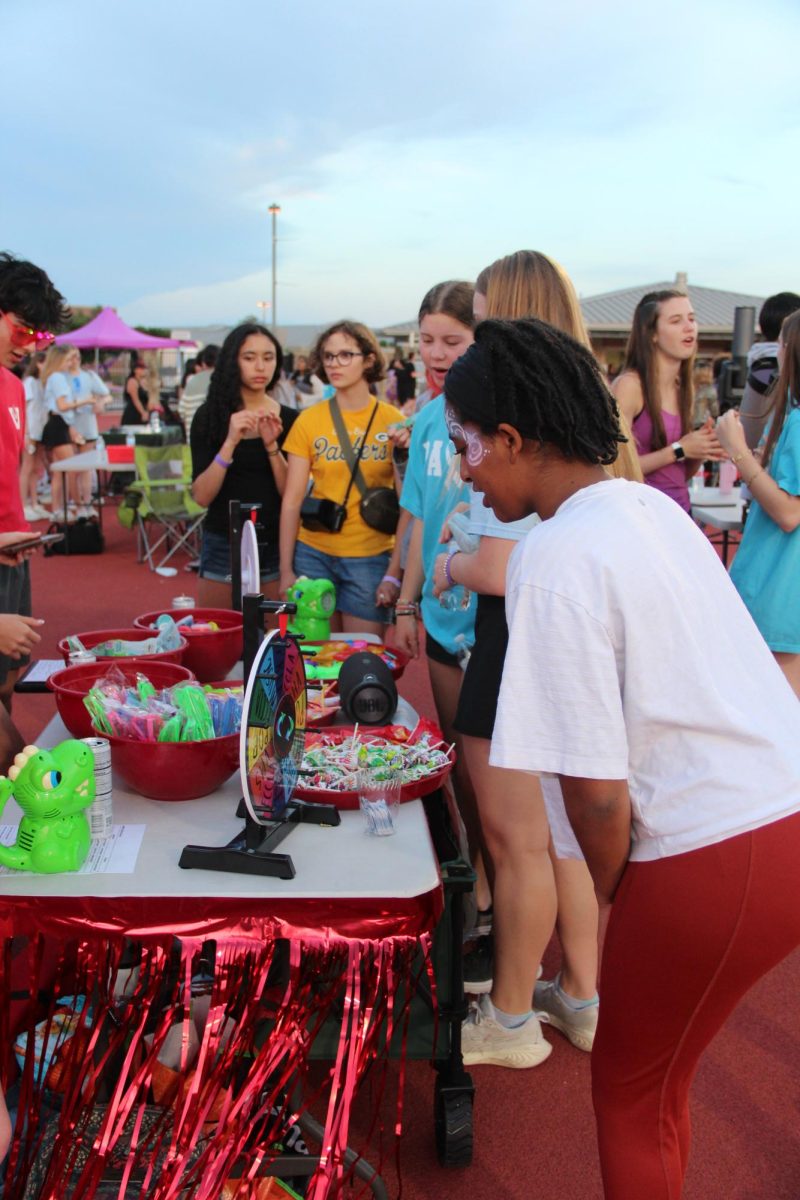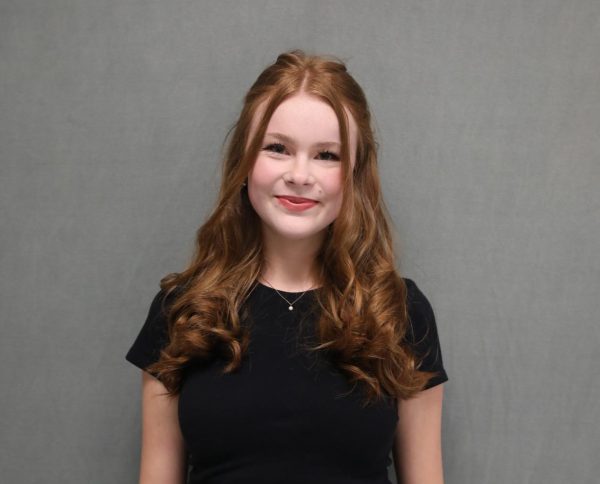You uncomfortably putter into the gymnasium, wiping the residual sweat from your forehead. The late autumn heat uncomfortably blankets everyone in line as the blazing sun sets and the indoor air conditioning serves as a reprieve after the wait. It is finally your turn. You saunter up to your compartment, boldly fill in the little dot, and place the completed ballot in the cardboard box. On your way out you grab a sticker, proudly displaying ‘I voted’ on your chest for the rest of Tuesday.
Class of 2025 seniors are in a unique position this election year – having the opportunity to vote in the presidential and state-wide races while still being in high school. These students are faced with a tough decision as they take to the ballot box for the first time and contribute to the election.
“Democracy relies on an informed electorate,” senior Max Lipton said. “To not vote when it is the point of our entire system is letting everything happen passively around you. I realistically won’t have any influence in this election, but I would be a hypocrite if I didn’t vote and claimed that people should vote more.”
While placing your ballot is critical to uphold a successful society, many citizens young and old neglect this civil duty, especially in Texas. Texas ranks 42nd in regards to overall voter turnout according to World Population Review. Despite this, Lipton and fellow senior Rowen Johnson believe that representing your beliefs on the national level by voting is deeply crucial.
“I think [voting] is important because every vote matters,” Johnson said. “Obviously, you need to do your research and know who you’re voting for, but it’s important to be active in your community and in the country you live in.”
While Johnson and Lipton are both voting in the election many of their peers are not. Nationally, voter turnout is directly related to age as more older citizens vote versus younger. Despite this, Lipton believes that voting is especially important for the younger generation entering adulthood.
“When you look at the statistics it’s all old people who vote and not young people,” Lipton said. “That needs to change. We’re the ones living in this world. We’re the ones who can benefit from these policies. We should be the ones making these choices for government.”
Youth voters – defined as those aged from 18-29 – had a 41% voter turnout in Texas for the 2020 national election. While the figure is anticipated to improve this November, there is still a tremendous demographic divide in turnout. This phenomenon is due to a variety of factors including a lack of civic education for youth and a disinterest in politics. Lipton has his own hypothesis on why some of his peers are not voting in the upcoming election however.
“I think it is because [young people] are very cynical,” Lipton said. “We see that thousands of people are voting and that we’re in a red state and many people question what the point of voting is. It is very easy to fall into the mindset of thinking your vote does not matter and not voting at all.”
Like other voters, students wanting to make an informed decision research the viewpoints of the candidates before casting their ballot. Adolescence is about developing a personal identity and an often forgotten element of quest for discovery is understanding where you stand on societal issues. Johnson and Lipton both did research before voting, utilizing a variety of sources to pick the candidate that supported their own moral compasses and political ideologies.
“I think that [the candidate] should do things that you support,” Johnson said. “Research if that candidate has the same values as you and the same morals. If you like the direction that they may take the country then you should lean towards that candidate.”
An additional issue facing youth as they cast their ballot this election is the bias within media. According to the Pew Research Center around eight in 10 Americans believe that news organizations tend to favor one side when presenting political coverage. For a fresh mind just investigating politics, this can be detrimental. To combat this problem Lipton outlines finding non-partisan news sources.
“I tried to find non-partisan sites and research opportunities,” Lipton said. “A big part of this is listening to the opinions of those around you and thinking about those opinions for yourself. It is very important to find reliable information to make this decision.”
Both Johnson and Lipton admit that their family has had an influence on their political beliefs. However, they also worked to form independent opinions and think about the impact of each candidate on their own life. Lipton describes the kind of policies he gravitated towards after doing more research on candidates and reflecting on the issues he finds most influential in this election.
“Most of the policies that I support from candidates are related to me,” Lipton said. “Many are about college education because that is what I am going to pursue after high school, as well as low income welfare because as a college student I will be lower income. Additionally, abortion was a big issue for me because I think it is such a basic human right and innovation.”
According to the Pew Research Center the two major issues dictating voters’ choice this November are the economy and healthcare. Every voter has a unique set of circumstances influencing their political choices. For Lipton, his position as a first generation American and tendency to support domestic social welfare were driving components in making an educated vote.
“I am a first generation American. My parents are both immigrants and I would immigration to stay legal,” Lipton said. “Furthermore when it comes to economic policies I tend to value social welfare. Healthcare was my number one ticket item and I feel the candidate I chose was way more supportive of that compared to other candidates.”
For Johnson, she states that the primary subject that affected her vote was the economy. 81% of voters stated that the economy was a very important issue to them this election cycle – placing the economy in the first spot of importance in front of healthcare, Supreme Court appointments, foreign policy, and violent crime.
“I picked the candidate I voted for based on moral and economic issues,” Johnson said. “I want to live in a country that is safe, I want to live in a country that is great and has no wars and supports people. I want to be able to afford one day and live in a safe country. Living near the border influenced my opinion on safety. I think I selected the candidate that supports that choice.”
While voting for the first time may be overwhelming, civic engagement is exceptionally important. As a part of a new, younger generation, seniors are faced with tough choices that have a profound impact on the future of the nation. Johnson elaborates on why voting is important to her and urges other young people to register if they are able to.
“We’re the future,” Johnson said. “We are the people that are involved in this country and are going to be living in this country. We have as much a say as anyone else. If you want to live in a country that you love and want to live in you should have a part in that and vote.”









